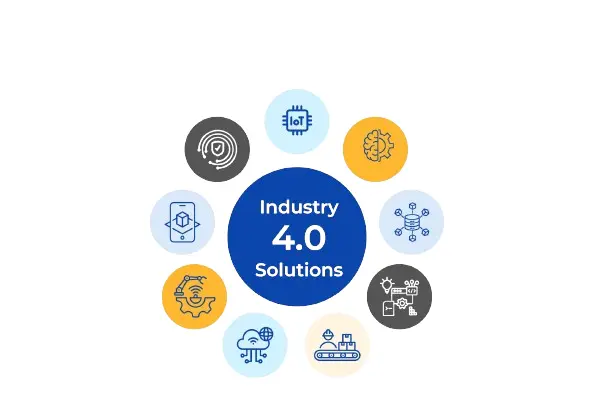Course Overview
This course covers the principles and practices of air quality monitoring, data analysis, and management strategies. Participants will learn about monitoring technologies, network design, quality assurance, and how to use data for compliance, public communication, and developing effective Air Quality Management Plans (AQMPs).
Course Duration
5 Days
Target Audience
-
Air quality monitoring technicians and data analysts
-
Environmental officers in government and industry
-
HSE managers
-
Urban planners and public health officials
-
Environmental consultants
Personal Impact
-
Ability to design a basic air quality monitoring network.
-
Skills to operate common air monitoring equipment and implement QA/QC protocols.
-
Understanding of how to interpret monitoring data and assess compliance with standards.
-
Knowledge to contribute to the development of air quality management plans.
Organizational Impact
-
Reliable and defensible air quality data for regulatory reporting and decision-making.
-
Proactive identification of air pollution hotspots and trends.
-
Improved public communication regarding air quality performance.
-
Support for the development of evidence-based emission reduction strategies.
Course Level:
Course Objectives
-
Design a sampling strategy for an air quality monitoring program.
-
Understand the operation of key ambient and stack air monitoring equipment.
-
Analyze air quality data to identify trends and assess compliance.
-
Outline the key components of an Air Quality Management Plan (AQMP).
Course Outline
Module 1: Fundamentals of Air Pollution and Monitoring Objectives
-
Criteria pollutants, hazardous air pollutants, and their sources & health effects.
-
Objectives of monitoring: compliance, trend analysis, exposure assessment, public information.
-
Exercise: Defining clear monitoring objectives for an urban or industrial area.
Module 2: Air Quality Monitoring Technologies and Methods
-
Principles of reference and equivalent methods for criteria pollutants.
-
Continuous ambient monitors vs. passive sampling devices.
-
Source emission monitoring: stack sampling and continuous emission monitoring systems (CEMS).
-
Workshop: Hands-on session with portable gas analyzers and particulate monitors.
Module 3: Monitoring Network Design and Quality Assurance
-
Siting criteria: meteorology, topography, and proximity to sources and receptors.
-
Developing a rigorous Quality Assurance Project Plan (QAPP).
-
Calibration, maintenance, and data validation procedures.
-
Case Study: Critically evaluating the design of an existing monitoring network.
Module 4: Data Analysis, Interpretation, and Modeling
-
Statistical analysis of air quality data: means, percentiles, exceedances.
-
Calculating and communicating Air Quality Indices (AQI) to the public.
-
Introduction to atmospheric dispersion modeling for impact prediction.
-
Exercise: Interpreting a one-year dataset to determine compliance with national standards.
Module 5: Air Quality Management Planning and Policy
-
Key components of an Air Quality Management Plan (AQMP).
-
Developing emission inventories and control strategies.
-
Public communication, stakeholder engagement, and policy instruments.
-
Final Project: Drafting the framework for an AQMP for a specific city or industrial zone.
Related Courses
Course Administration Details:
METHODOLOGY
The instructor-led trainings are delivered using a blended learning approach and comprise presentations, guided sessions of practical exercise, web-based tutorials, and group work. Our facilitators are seasoned industry experts with years of experience, working as professionals and trainers in these fields. All facilitation and course materials will be offered in English. The participants should be reasonably proficient in English.
ACCREDITATION
Upon successful completion of this training, participants will be issued an Indepth Research Institute (IRES) certificate certified by the National Industrial Training Authority (NITA).
TRAINING VENUE
The training will be held at IRES Training Centre. The course fee covers the course tuition, training materials, two break refreshments, and lunch. All participants will additionally cater to their travel expenses, visa application, insurance, and other personal expenses.
ACCOMMODATION AND AIRPORT PICKUP
Accommodation and airport pickup are arranged upon request. For reservations contact the Training Officer.
- Email: [email protected]
- Phone: +254715 077 817
TAILOR-MADE
This training can also be customized to suit the needs of your institution upon request. You can have it delivered in our IRES Training Centre or at a convenient location. For further inquiries, please contact us on:
- Email: [email protected]
- Phone: +254715 077 817
PAYMENT
Payment should be transferred to the IRES account through a bank on or before the start of the course. Send proof of payment to [email protected]
Click here to register for this course.
Register NowCustomized Schedule is available for all courses irrespective of dates on the Calendar. Please get in touch with us for details.
Do you need more information on our courses? Talk to us.









